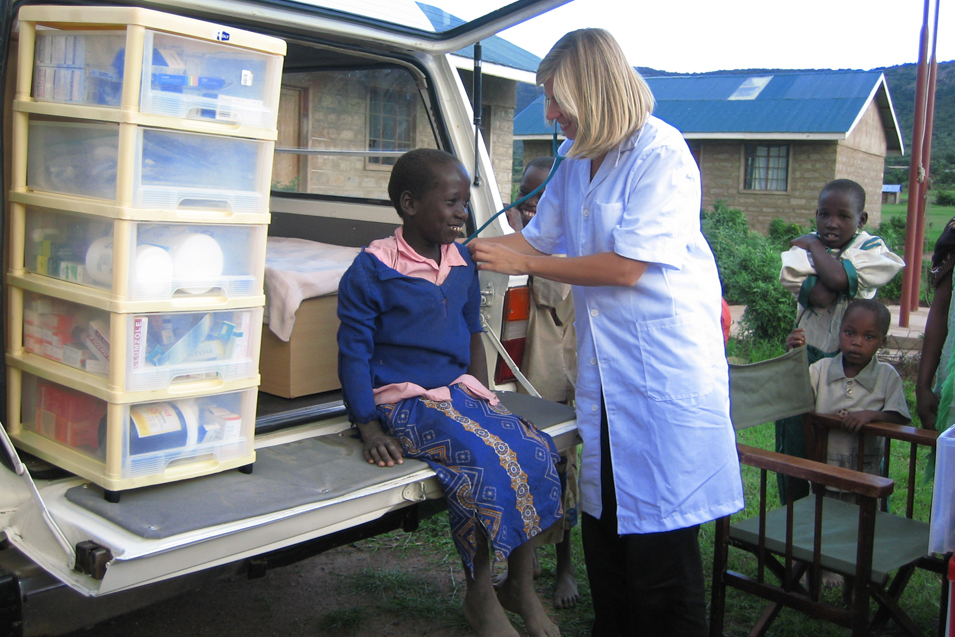Two years ago, Moses Owidi, a resident of Kisumu in Western Kenya would make three trips to Nairobi for a chemotherapy session at Kenyatta National Hospital (KNH).
Owidi, a prostate cancer patient told Xinhua in an interview on Thursday that he would be forced to travel to Nairobi thrice in two weeks for the sessions since there were not available machines in Kisumu.
“I used to spend 93 U.S. dollars on transport costs, about 62 dollars per session depending on the drug. It was very expensive. I drained my resources,” he recounted of the treatment that started in 2010 when he was first diagnosed with prostate cancer.
Now Owidi no longer makes the trips to Nairobi for chemotherapy (chemo) sessions. He finds the services at Jaramogi Teaching and Referral Hospital courtesy of his county government.
He is among the thousands of patients with such diseases and others who are enjoying the benefits of devolving health services to the county level.
“I spend less on treatment. I thank the country government and devolution in general for bringing health services closer to the people,” he said.
For prostate cancer, chemo drugs are typically used one at a time. Private hospitals in the East African nation charge higher fees compared to government-owned health facilities. The cost ranges between 125 dollars and 2,083 dollars.
Health services are among the functions that was devolved in 2013 when Kenyan President Uhuru Kenyatta took office. Kisumu Governor Jack Ranguma and his Bomet counterpart Isaac Ruto said that county governments have helped people access health services that they used to seek in Nairobi, hundreds of kilometres away.
The governors said they have invested billions of shillings in purchase medical equipment to ensure services are brought closer to people. The services include diagnostic, x-ray, surgery and cancer treatment in health centres and referral hospitals.
Most of the health facilities at the local levels have also been refurbished and equipped, enabling Kenyans to access services easily and affordably.
“If it were not for county governments, my baby would have died recently,” said Priscah Atieno, a local resident.
“She was breathing heavily because she had lung problem. I took her to Jaramogi hospital in Kisumu and she was operated on. These services we only used to access in private hospitals,” he said.
There are, however, challenges of the county governments offering the services, leading to debate on whether health docket should be reverted back to the national government.
Last week, the National Assembly Committee on Implementation recommended an amendment to the constitution to let the national government retake the health docket.
But the governors have maintained that they have invested billions of money to revamp and restore the ailing health sector.
FRENCH VERSION
Owidi, un patient de cancer de la prostate a déclaré à Xinhuadans une interview jeudi qu’il serait obligé de voyager à Nairobi,trois fois en deux semaines pour les sessions, puisqu’il n’y a pasdes machines disponibles à Kisumu.
“J’ai utilisé pour passer des 93 dollars américains sur les frais detransport, environ 62 dollars par séance selon le médicament.C’était très cher. J’ai vidé mes ressources,”il a fait état dutraitement qui a commencé en 2010 quand il a été tout d’aborddiagnostiqué avec le cancer de la prostate.
Maintenant Owidi ne fait plus les voyages à Nairobi pour desséances de chimiothérapie (chimio). Avec la permission de songouvernement d’un comté, il trouve les services à l’enseignementde Jaramogi et hôpital.
Il est parmi les milliers de patients atteints de ces maladies etd’autres qui bénéficient des avantages de déléguer les servicesde santé au niveau des comtés.
« Je passe moins sur traitement. “Je remercie le gouvernementdu pays et de dévolution en général pour instaurer la santéservices plus près au peuple, dit-il.
Cancer de la prostate, sont généralement des médicaments dechimiothérapie utilisé un à la fois. Des hôpitaux privés dans lanation d’Afrique de l’est frais plus élevés par rapport auxétablissements de santé publique. Le coût varie entre 125 et 2083 dollars.
Les services de santé sont parmi les fonctions qui a été dévolu en2013, lorsque le Président Kenyan Uhuru Kenyatta a pris sesfonctions. Kisumu gouverneur Jack Ranguma et son homologuede Bomet Isaac Ruto a déclaré que gouvernements du comté ontaidé les services de santé d’accès personnes qu’ils cherchent àNairobi, des centaines de kilomètres de là.
Les gouverneurs, a déclaré qu’ils ont investi des milliards deshillings en achat de matériel médical pour s’assurer que lesservices sont rapprochés de personnes. Les services incluent lediagnostic, le traitement aux rayons x, de chirurgie et de cancerdans les dispensaires et les hôpitaux de référence.
La plupart des installations de santé au niveau local ont étérénovée et équipée, permettant aux Kenyans accéder aux servicesfacilement et à moindre coût.
« Si ce n’était pas pour les gouvernements du comté, mon bébéserait mort récemment, » a déclaré Priscah Atieno, un résidentlocal.
“Elle respirait lourdement parce qu’elle avait problèmepulmonaire. Je l’ai emmenée à l’hôpital de Jaramogi à Kisumu etelle a été opérée. Ces services nous avons seulement utilisé pouraccéder, en privé, hôpitaux », dit-il.
Il y a, cependant, les défis des gouvernements comtés offrant lesservices, conduisant au débat sur si le dossier de santé doit êtrerétablie au gouvernement national.
La semaine dernière, le Comité National de l’Assemblée sur lamise en œuvre recommandé de modifier la constitution pourlaisser le gouvernement reprendre le rôle de la santé.
Mais les gouverneurs ont maintenu qu’ils ont investi des milliardsde l’argent à réorganiser et à restaurer le secteur de la santémalade.


